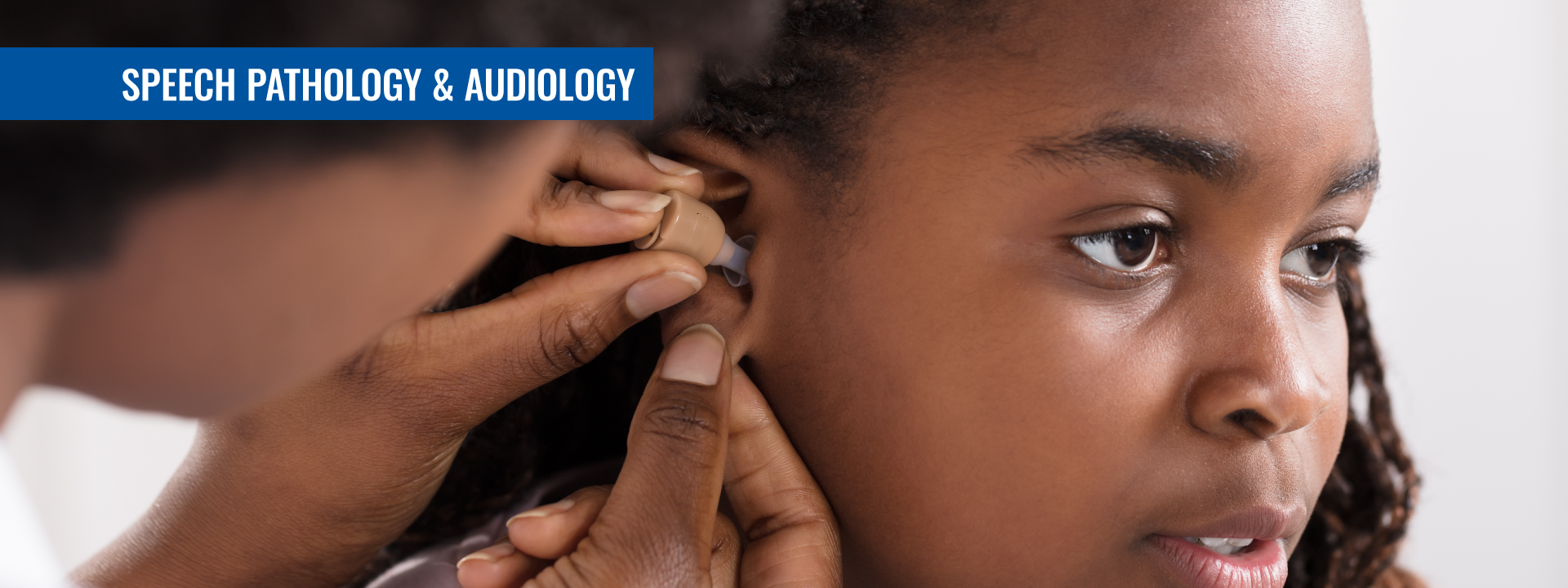When Should You See a Speech Pathologist for Language Disorders?
When Should You See a Speech Pathologist for Language Disorders?
Blog Article
Exactly How a Speech Pathologist Can Assist Improve Communication Skills
Reliable interaction is a keystone of individual and professional success, yet lots of people deal with difficulties that impede their capability to express themselves clearly. A speech pathologist is geared up to attend to these barriers through targeted assessment and treatment approaches customized to every individual's demands. By using evidence-based healing methods, they not only work to boost speech and language problems however also enhance total communicative skills. Comprehending the multifaceted role of a speech pathologist discloses exactly how their competence can transform lives, welcoming a closer examination of the specific techniques and results connected with their technique.
Understanding Communication Problems
Comprehending interaction conditions is necessary for identifying exactly how they influence individuals' ability to reveal themselves and involve with others. Interaction conditions include a vast array of problems that influence speech, language, and social interaction, typically impeding efficient communication. These disorders can develop from different aspects, consisting of neurological conditions, developing delays, physical disabilities, or mental concerns.
Speech conditions may materialize as difficulties in expression, fluency, or voice manufacturing, influencing exactly how words are pronounced or talked. Language problems, on the various other hand, include difficulties in understanding or making use of language, which can impede both verbal and non-verbal communication. Social communication conditions are defined by difficulties in the pragmatic facets of interaction, such as taking turns in conversation or understanding social cues.
The repercussions of communication conditions are extensive, affecting not just the person's capacity to share ideas and feelings yet also their social connections, academic possibilities, and total top quality of life. Awareness of these conditions can promote empathy and support, encouraging effective strategies for communication and involvement. Recognizing the complexities of interaction conditions is a critical step towards advertising inclusivity and resolving the requirements of those influenced.
Duty of a Speech Pathologist
Speech pathologists often play a crucial function in diagnosing and treating communication disorders, employing an array of evidence-based strategies tailored to each person's requirements. These experts work with people across the life-span, from kids with speech delays to grownups recuperating from strokes or terrible brain injuries. Their expertise incorporates a range of communication issues, consisting of articulation, language, voice, and fluency problems.
In restorative settings, speech pathologists make use of organized interventions developed to boost communication abilities. They may implement methods such as speech workouts, language games, and social interaction training to help with enhancements in meaningful and receptive language abilities. Speech Pathologist. Additionally, they inform clients and their family members regarding reliable interaction methods and adaptive methods to browse daily interactions
Beyond direct therapy, speech pathologists work together with various other medical care caretakers, instructors, and professionals to guarantee a thorough approach to treatment. They promote for customers by providing resources and assistance, enabling individuals to achieve their communication objectives and boost their total quality of life. As professionals in the field, speech pathologists are crucial in fostering effective communication, promoting self-reliance, and improving social involvement for those with communication difficulties.
Evaluation and Medical Diagnosis Refine
The analysis and medical diagnosis procedure performed by speech pathologists typically involves a comprehensive assessment to recognize communication problems precisely. This process starts with a detailed case history, where the clinician gathers essential details regarding the individual's medical, educational, and developmental history. Recognizing the context of the person's interaction troubles is necessary for a precise diagnosis.
Following the case background, speech pathologists make use of casual evaluations and standard tests to assess different elements of communication, consisting of speech audio production, language comprehension, meaningful language, and social interaction skills. These analyses are tailored to the individual's age and specific worries, supplying important next page information for analysis.
Observation is additionally an important element of the analysis procedure, as it allows the medical professional to see firsthand just how the private connects in natural setups. Furthermore, meetings with member of the family and instructors can provide understanding into the person's communication difficulties throughout different settings.
Once the analysis is complete, the speech pathologist manufactures the findings to figure out a medical diagnosis webpage and suggest ideal treatments. This complete analysis process makes sure that individuals get targeted assistance tailored to their special interaction needs, laying the structure for reliable restorative methods.
Healing Techniques and Methods
Countless therapeutic methods and techniques are used by speech pathologists to attend to a range of communication conditions properly. One widely utilized technique is expression therapy, which concentrates on dealing with speech sounds through repeating and visual hints. This strategy is specifically helpful for people with speech audio problems.
An additional effective technique is language intervention, which improves both expressive and receptive language skills. This may include interactive activities that promote vocabulary advancement, syntax understanding, and conversational skills. Furthermore, speech pathologists commonly use social skills training to enhance pragmatic language abilities, enabling individuals to navigate social communications more efficiently.
Fluency shaping and stuttering modification techniques are specifically designed to aid those experiencing fluency problems. These strategies aid customers establish smoother speech patterns and manage the emotional and physical components of stuttering.
Additionally, augmentative and different interaction (AAC) systems are used for people with serious communication impairments. These systems, which can consist of motions, signs, or electronic tools, give essential support for reliable communication.
Benefits of Speech Treatment

Furthermore, speech treatment can aid in creating crucial listening and comprehension skills, cultivating far better interaction in conversations. People with cognitive-communication conditions can also benefit, as treatment concentrates on enhancing memory and problem-solving capacities, necessary for efficient communication.
An additional vital aspect is the psychological support provided throughout therapy sessions. Speech pathologists create a risk-free environment, motivating clients to overcome anxiousness and disappointment pertaining to their interaction problems. This support can cause improved self-worth and general psychological wellness.
In addition, early treatment through speech treatment can prevent more problems, ensuring that individuals reach their complete communicative potential. On the whole, the benefits of speech treatment expand beyond plain speech improvement, positively influencing various measurements of life for those influenced by communication troubles.
Conclusion
In summary, speech pathologists play a critical role in dealing with interaction disorders through assessment, medical diagnosis, and tailored therapeutic interventions. By using evidence-based techniques, these professionals improve people' speech and language capacities, Speech Pathologist fostering enhanced clearness, fluency, and social communication skills. The benefits of early treatment emphasize the relevance of seeking support from speech pathologists, as their experience can significantly improve communicative capacity, eventually bring about better success in both professional and personal spheres.

Speech pathologists regularly play a crucial function in treating and identifying interaction disorders, using an array of evidence-based methods customized to each person's demands. As professionals in the area, speech pathologists are important in promoting efficient interaction, advertising independence, and improving social involvement for those with interaction challenges.

Report this page